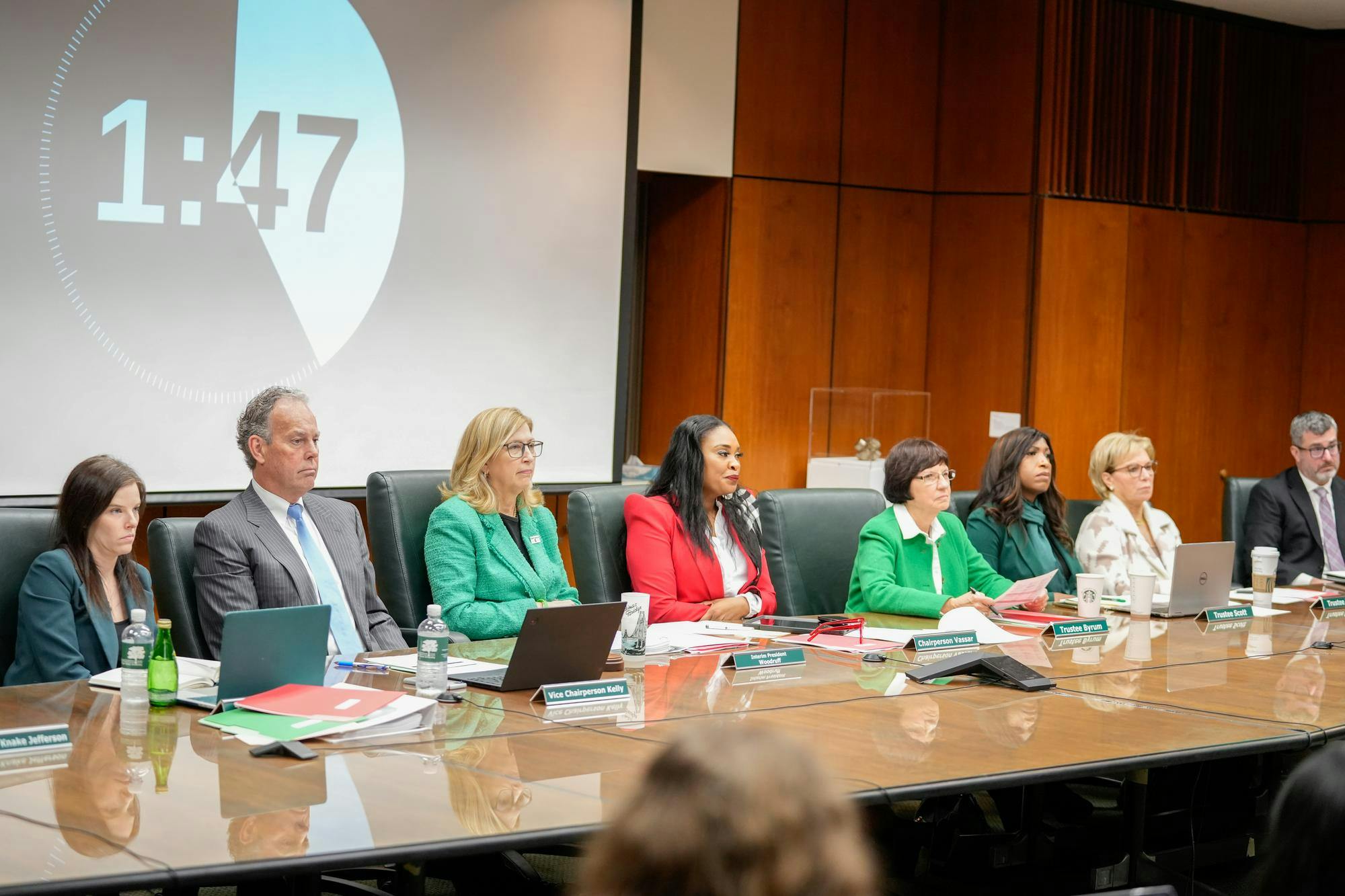Michigan State University’s board of trustees has signed pledges committing to not interfere in the administration of incoming president Kevin Guskiewicz.
The board has been accused of meddling in the work of the last two presidents. Guskiewicz, the current chancellor of University of North Carolina Chapel Hill, told the board he would only take the job at MSU if it committed to break its habit of improper involvement.
The pledges — which were endorsed by Guskiewicz and passed by the board — say the trustees are committed to “building trust” through a clarified role in running the university.
“The board serves as a resource and advisor to the president, evaluating and holding the president accountable to ensure agreed-upon progress toward strategic goals,” the pledges said.
The pledges then forbid the board from specific methods of intrusion on the president’s work.
The board agreed to not make requests of individual administrators and employees, instead committing to work through the president.
They also agreed to not try to “obtain data and additional information” from individual employees, instead committing to get their information through official committee presentations or through the president.
The pledges also mandate that the board provide feedback to the president about his performance through the official assessment processes.
The pledges were unanimously passed by the board at their meeting Friday.
The only discussion on the vote came from Trustee Brianna Scott, who said “it’s about time.”
MSU's board and administration are separate. The administration, led by the president, runs the university day-to-day, while the board, which is elected statewide in partisan races, is tasked with overseeing the president and making big-picture decisions.
The university's recent presidencies however have been rife with allegations that the board has blurred those lines, meddling and interfering in the administration's work.
Samuel Stanley, who was appointed president in 2019, resigned last fall saying he had “lost confidence” in the board and grown tired of frequent interference by trustees.
The role was then filled by Teresa Woodruff, who still serves as the interim president today. The board has also been accused of meddling in her temporary tenure.
In a letter written last month, Scott accused board chair Rema Vassar of “bullying” Woodruff and usurping her authority by meeting with figures inside and outside the university behind Woodruff’s back to discuss major changes to the university.
Woodruff has said little about the allegations, but did release a statement calling work under Vassar “challenging” at times. Vassar, the first Black woman to chair MSU’s board, has rebuked the allegations, saying they are racially motivated.
Woodruff is not a candidate for the permanent presidency. She said in August that she did not wish to be considered.
The board’s alleged interference has been criticized by figures inside and outside MSU.
Last fall, after Stanley voiced his concerns with the board, MSU’s faculty senate and student government organizations voted “no confidence” in the board’s ability to effectively govern the university.
Barbara Snyder, the president of the Association of American Universities, said in a statement released last fall that the board’s reported behavior amounted to “inappropriate meddling” and that “micromanagement and partisan politics have no place on a healthy university board.”
In written statements made to MSU's faculty weeks ago, Guskiewicz said he’s had “very direct and honest conversations” with MSU’s board about working more cohesively with his theoretical administration.
“If I were fortunate to be selected as the next president, I would only accept the role if I were given the opportunity to lead (MSU) without undue interference; instead, leading in a trusted partnership with the trustees, faculty, and staff," Guskiewicz wrote in the statements.
Guskiewicz was officially appointed last week. He will leave UNC in January and begin work at MSU in March.







